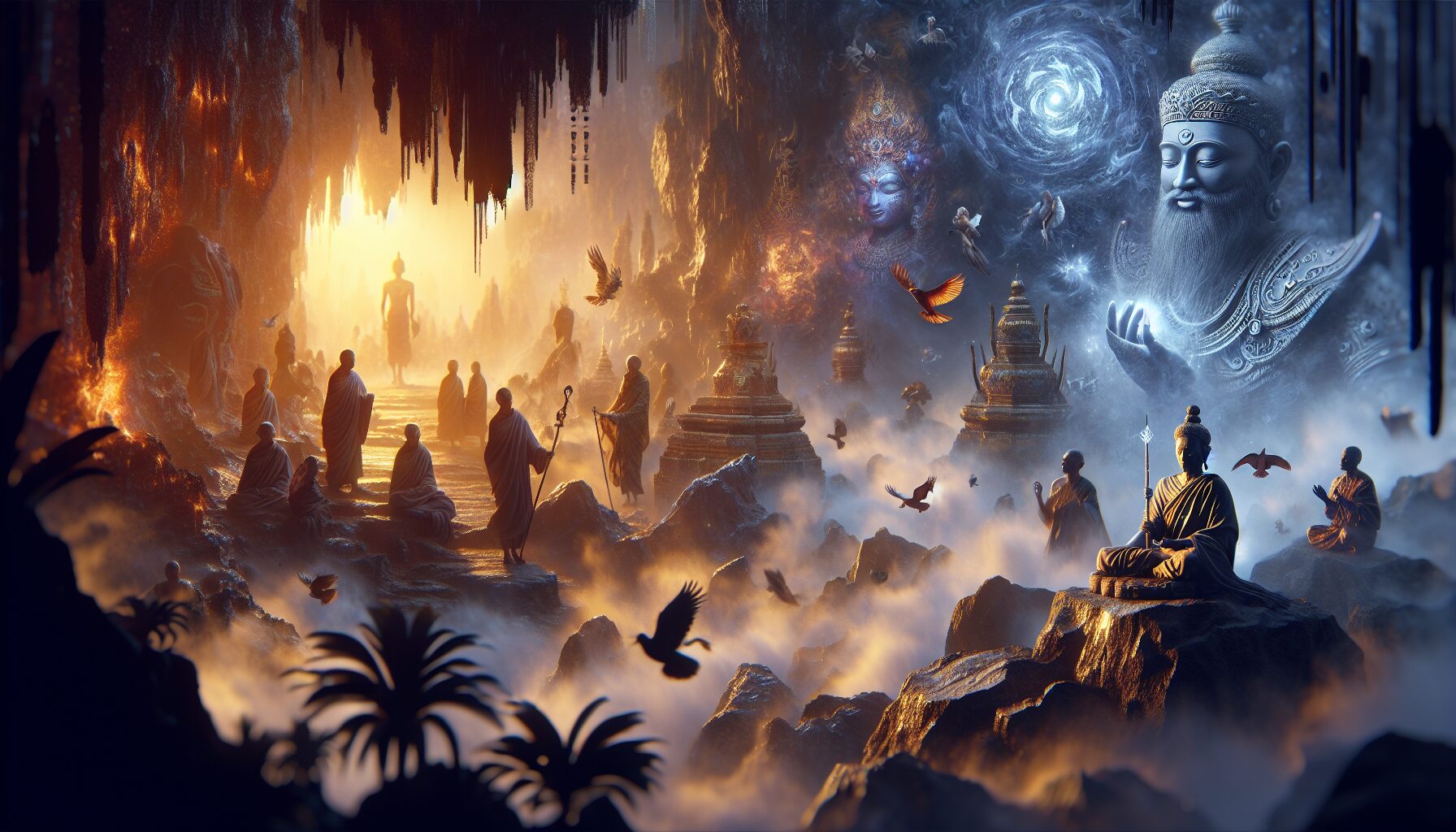For centuries, the concept of universal archetypes has captivated the minds of psychologists, mythologists, and philosophers alike. These archetypes, deeply embedded in the collective unconscious, resurface time and again, revealing the profound resonance they hold within human culture and psyche. As we navigate modernity, could the echoes of forgotten gods be a manifestation of these timeless patterns?
The Nature of Archetypes
Archetypes were first prominently introduced by Carl Jung, the Swiss psychiatrist and psychoanalyst who worked closely with Sigmund Freud. Jung defined archetypes as “universal, archaic symbols and images that derive from the collective unconscious”—structures shared by people all over the world (The Carl Jung Website).
- The Hero: This archetype embarks on an adventurous quest, exemplifying courage and resilience.
- The Mother: A nurturing, life-giving figure often associated with creation and growth.
- The Trickster: Known for their cleverness and deceit, often serving as a catalyst for change.
These archetypes play a foundational role in shaping narratives, whether they’re ancient myths or contemporary stories. They forge a connection between the human experience and the spiritual, transcendent aspects of life.
Modern Reawakenings
In today’s world, the echoes of these archetypes can be perceived in numerous ways. With the rise of superhero movies and fantastical storytelling, the Hero archetype is undeniably thriving. Characters such as Marvel’s Thor, who draws directly from Norse mythology, embody the qualities of both ancient gods and modern heroes.
“Superheroes are modern mythology,” says Dr. Will Brooker, a professor of film and cultural studies at Kingston University, highlighting the enduring appeal and adaptability of these archetypal figures. (The Guardian)
Psychological and Cultural Impact
The resurgence of these archetypes in modern culture points to a psychological yearning for connection to deeper truths and shared human experiences. As Joseph Campbell, an American professor of literature known for his work in comparative mythology and religion, once remarked, “The great thing about myths is that they point beyond themselves to deeper truths.”
By engaging with these timeless stories and characters, individuals find meaning and identity in an increasingly complex world. They serve as reminders of our intrinsic similarities, uniting us across cultures and ages.
Thus, the echoes of forgotten gods, represented through potent archetypes, continue to wield their power, reshaping narratives and illuminating the labyrinthine pathways of the human psyche, urging us to remember and reawaken to the timeless truths they carry.

Comments